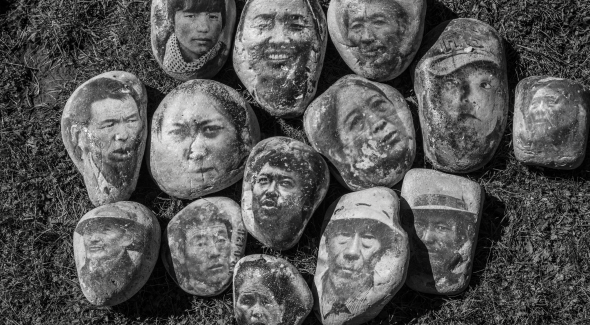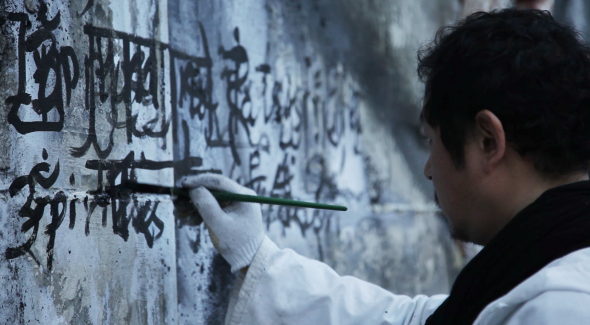Gao Bo
The only law governing the work of Gao Bo is the search for diversity of expressive forms. Whether via photography, painting, sculpture, installation, performance, or architecture, he strives to articulate his passion for creation and his dread of destruction, his hopes and his despair. It is these conflicting feelings that help us read some of his artistic actions, and notably his gesture of hanging large photographic prints in the gallery space for the opening night, then covering these with black paint the following day, and, a little later on during the exhibition period, erasing the obscuring in an attempt to recover the lost image. Or again, when he covered a woman’s body with emulsion, making it a living, perishable photographic support, an ephemeral reproduction of that ideal and eternal woman that is the Mona Lisa. Or when he brought back from Tibet, which for him is a land of mystic inspiration, pebbles that would serve as the support for photographic portraits of human beings, the mineral material (which he took from nature and which is destined to return to it) of both spectres and their tombs. If this man who, as a young child met with the incomprehension of his family, and who wanted to study fine arts and then music, eventually made a name for himself, by chance, as a photographer, his awareness of what photographs owe to reality rather to the artist’s gaze has made Gao Bo disinclined to take pride in the photojournalistic images that got him noticed, including the ones that he dashed off as an exercise at art school, during the life class, using a makeshift camera lent by a teacher, which, to his great surprise, won him the Hasselblad Prize.
To meet Gao Bo and hear him tell his story is to witness an irresistible subversion of the conventional image of the artist as the hero of a social adventure inhabiting the same world as golden boys, traders and champions of art as commodity. There are some international Chinese artist who could be summed up as follows: nationality: artist; profession: Chinese. Without playing on words, I will try to get my idea across by suggesting that Gao Bois is first of all an artist, and that Gao Bo is Chinese, but that he is not what the art world today would call a Chinese artist.



